"The Quiet, Wintry North": Digital Folk of the Upper Peninsula
Dan W. Lawrence
In America's most "remote" of locations, a digital-centric music scene flourishes. But it's not electronic music that the folk of Michigan's wintry Upper Peninsula find interest in: it's a rootsy, quiet, lo-fi, experimental Americana that is self-produced and self-distributed. With no major venues or recording studios, and not even a well-founded independent record label, musicians of the Upper Peninsula turn to the Internet to organize musical performances and events, plan collaborative recording sessions using limited resources, and share their thoughtful, introspective music.
The author reflects on these issues of independent folk music and self-production, as well as the digitization of music. Further, the author advocates for a rhetoric of music and new pushes in ties between rhetoric and musicology. How can we start to appreciate music as something more than that which "moves" us emotionally? The author also explores the question of what it really might mean to be a "folk" artist amidst the influence of the music industry in the waves and throes of capitalism.
This is a homemade demo from the author’s projected spring 2013 album: I am my own ghost. It was recorded in an apartment in Hancock, MI with Cubase LE and a Blue “Spark” microphone.
A Remote Musical Network
An article appeared in The Atlantic Cities in October 2012 titled “How Far Can You Live From an Interstate Highway?” In the piece, Henry Grabar hunts for rural America’s most remote locations—in terms of vehicular transportation, anyway. As a sixth-generation "Yooper," I wasn’t surprised to read the following:
I found that the farthest places from the Interstate are actually east of the Mississippi, on a peninsula that juts north into Lake Superior from Upper Michigan.
A great-great-great grandfather of mine was a prospector and "medicine man" who came to the Upper Peninsula from Canada, presumably, in the late 1800s during America’s first big Copper Rush. He subsequently annihilated his right arm in a dynamite accident, so in family lore he is known as "Lefty Lawrence." Another ancestor was a Finnish horse thief. But these are tales for over an ale. Case in point: I’m still up here.
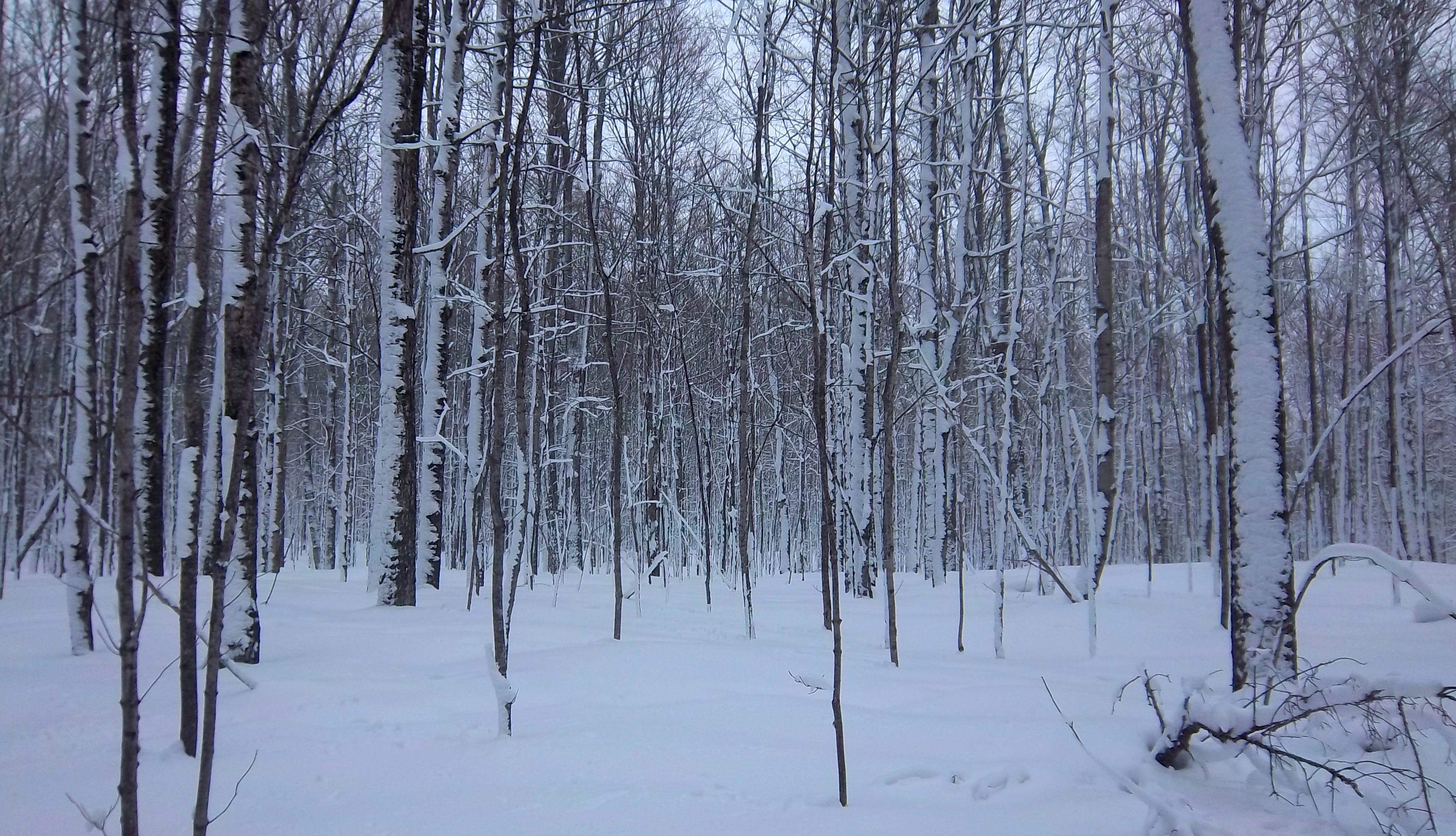
Wintry woods near Eben Junction, MI, in March 2013.
Now, the geographically remote is no longer the disconnected. President Barack Obama visited Northern Michigan University in February 2011 to applaud their WiMAX initiative, an off-campus wireless Internet service for no cost to students. The service covers an incredibly expansive area: “the cities of Marquette, Gwinn, Ishpeming, Negaunee, K.I. Sawyer, and Chocolay township” all have access to NMU’s WiMAX. Tuition wasn’t raised, and the entire system was installed by six people in four days.
Obama commended this connectivity and went on to discuss the role of infrastructure in economy, even at the local level, using Marquette’s Getz’s Clothiers as an example:
This is a third-generation, family-owned Marquette institution. They’ve occupied the same downtown store for more than a century—but with the help of broadband, they were recently listed as one of America’s 5,000 fastest-growing companies. Now how did they pull that off?
Obviously they’ve got great products, great service. But what’s also true is online sales now make up more than two-thirds of their annual revenue. Think about that. You got a downtown department store; now two-thirds of its sales are online. It can process more than 1,000 orders a day, and its workforce has more than doubled. So you’ve got a local business with a global footprint because of technology.
Now, if you can do this in snowy U.P.—we can do it all across America.
Digital networks in remote geographical locations are facilitating all sorts of human interactions. This is true, too, beyond economic transactions. Musicians of the frozen north are turning to digital spaces to share and publish their tunes and organize events, spurring on a sort of electric renaissance. And the music that many are creating carves out a space all of its own: an independent folk characteristic to the region.
There are no major commercial music venues in the Upper Peninsula. I am proud of this; our regional music has flourished and established a strong identity for itself with a distinct distance from the capitalist-musical-cultural complex—that hierarchical and powerful network of media companies who control our radio, major venue chains who control stage time, and giant record labels that publish and distribute specific types of artists.
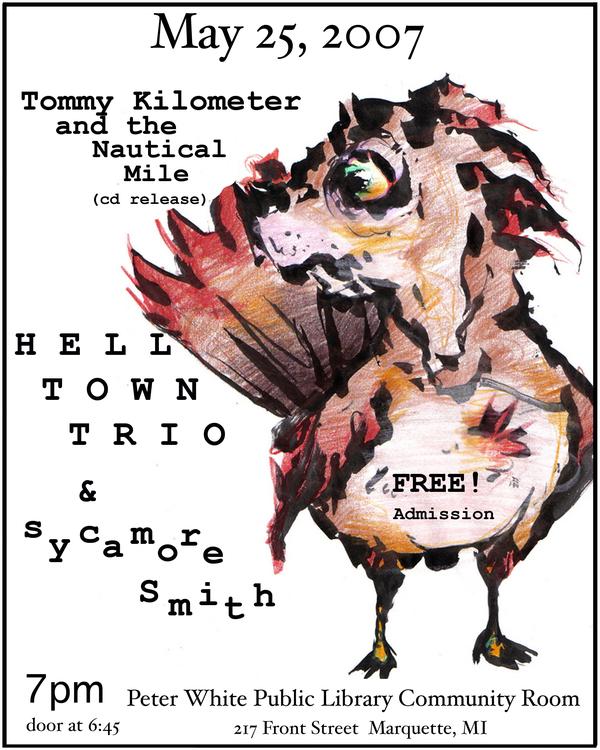
Local independent artists, rather than in-house
venue design teams, contribute to promotional
posters in an open collaboration characteristic
of the Upper Peninsula.
We have seen a rise in the popularity of what many are calling folk or Americana music—Grammy awards and late night talk show performances—with groups like Fleet Foxes, Mumford & Sons, and The Lumineers.
This recent folk bubble might pop. We might wonder why it is here at all. But we must be very critical of what it is doing, and the façade it seems to be casting: a sort of folk that is absolutely disconnected from what it means to be folk.
Turning to Virtual Venues
The thoughtful and reflective collective of musicians who live in the distant, snowy north have been producing, distributing, and performing their music for decades.
The physical substrate of this collective was, for some time, Marquette’s 231 "House of Muses" on West Washington Street, until a January 2007 fire rendered the building uninhabitable and left few remnants of several lives’ collections of audio and musical equipment.
A hardwood floor that once packed two hundred bodies to see Michigan legends Säh, Sycamore Smith, and Hell Town Trio on stage now stands as an empty shell in Marquette.
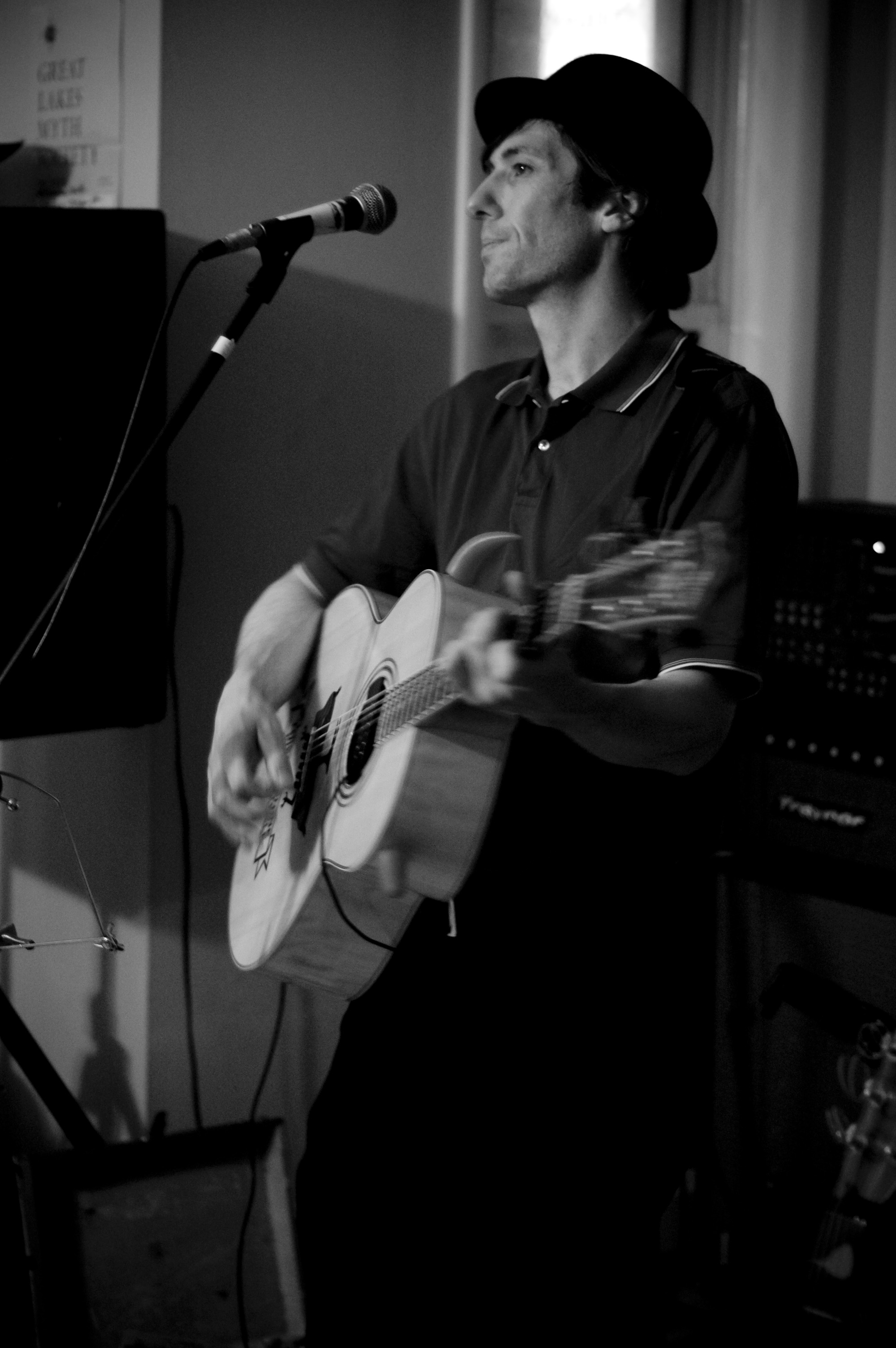
Marquette songster Sycamore Smith
performs in Houghton, MI.
Photo by Steven at Mostly Midwest.
My strange high school musical endeavor, Tommy Kilometer and the Nautical Mile, a rocky, tongue-in-cheek surf-pop confusion, frequently performed at the House of Muses and other small venues in the Upper Peninsula: a coffee shop in Iron River, in friends’ basements, and summer fairs and festivals. A network from the bottom up.
When that old band of mine disbanded, I began producing and recording my own acoustic-oriented, experimental, digital music using a laptop and a cheap condenser microphone. I published to online venues, as many local musicians did, and a collective was reunited in the fires and sparks of wired and wireless networks.
Digital musical networks and communities provide a cultural infrastructure to connect the Upper Peninsula folk and independent music scene not only across the region but across the world. Independent record label Van Party Tapes run by Marquette native Jeremy Moran sells its homemade "split cassettes" via BandCamp and regularly sells out of its limited edition runs. This juxtaposition of antiquated technology, the cassette, and the virtual marketplace is a strong gesture against corporate music publishing.
We have to be conscious of how these new virtual spaces are having an effect on the music being produced and distributed, as well as its reception. The advent of Internet radio has created an incredible venue for independent musicians to find an audience. But the complex of corporate music producers and decision-makers finds a way to infiltrate the most "pure" of independent music. Even the gritty, seemingly honest folk of Gillian Welch is backed by a degree in songwriting from the elite Berklee College of Music. I’m skeptical, always.
But what is authentic folk? Maybe it’s only a nostalgic construction. No, it seems that folk at its heart is the music of the people—the music of a democracy. It comes from the ground up and doesn’t strive to turn a profit. Yet, it still pulls us and shapes us and can be rife with dangerous ideologies.
This is why I have advocated for a rhetoric of music in the past and why I continue today: I dare to clash with a titan. Marshall McLuhan wrote that the medium is more significant than the message itself—though of course not so simply, and I don’t intend to reduce his argument here—while I hold that the message is in the invisible, in the ideological realm of what we produce and consume.
Folk, Rhetoric, Ideology
Can we access this ideological realm? Perhaps. Yet philosopher Slavoj Žižek warns that when we believe we have escaped from ideology, we are most entrenched in it. Both Plato and Aristotle wrote extensively on music, and recognized its spellbinding effect on the emotions.
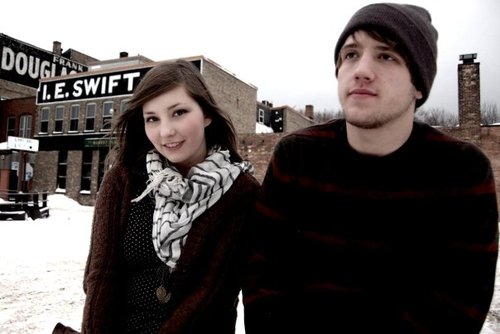
Ex-Houghton based group This is Deer Country.
Folk from the Keweenaw.
These philosophers advocated for the teaching of music in the education of the youth, and not just a technical training. This is a concept we have abandoned almost entirely. I think, though, that our ancient friends were too quick to judge music as being most able to appeal to pathos and move us to virtue.
We saw our folk music in the 60s rally a nation in political protest, and indeed we see much of our new-folk empty and simply returning to an overly-romantic reverence of nature, despite being highly produced and studio-driven in urban areas (Bon Iver’s self-titled second album, for example). Here lie the greatest dangers: letting our music go unquestioned, and thus letting our entire culture and lives and civilizations go unquestioned. Music is commendable in its ability to resist the throes of capitalism. It is shared, celebrated, and produced as part of a general, universal counter-culture. But in its ubiquity it can become silent.
Thus, a framework for working with music rhetorically should stress both production as well as analysis. If we do not actively design the sound of our world, we are likely to be controlled by it, influenced by it. A rhetorical approach to assessing music would address not only ideologies expressed in lyrics but would look, too, at canonical tropes.
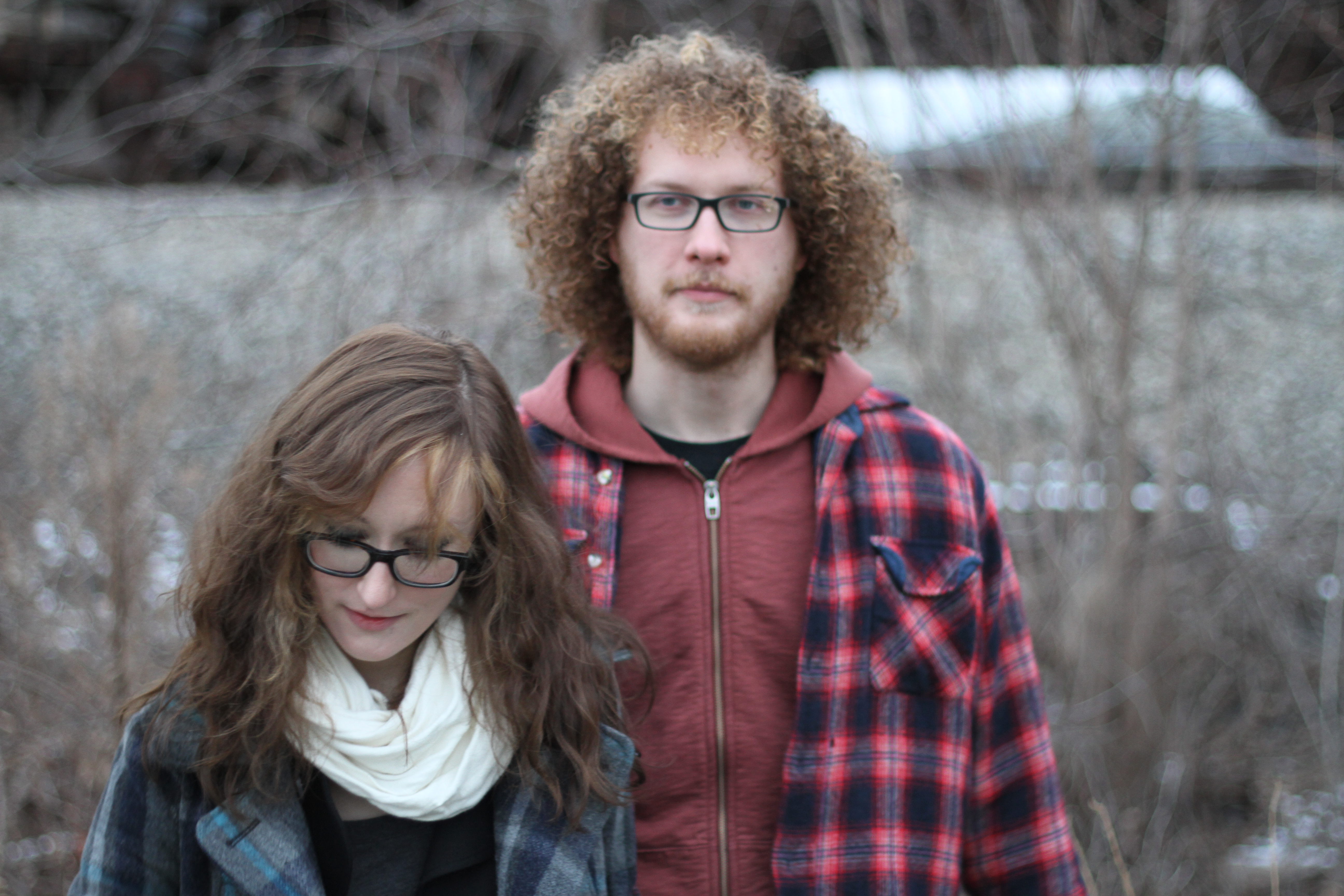
Based in Calumet, MI, Gratiot Lake Road describe their
music as "contemplative, carefully crafted folk tunes" that
"take birth from the melodic union of husband and wife."
Especially in the digital age—with sampling, remixing, and covering—we lose sight of origin, of authorship. As Heidegger noted, the languages we use were given to us ready-made. Similarly, music was always already going on before we were here. We must be critical of our past as we take it, use it, and create new forms and compose new melodies.
Of course, we are not all composers and producers. How can we become fluent in the creation of sound? I believe interdisciplinary collaboration might assist in the formation of a new sonic literacy, founded on a critical, rhetorical attitude.
Neo-Folk and Independent Production
I currently teach composition at Michigan Technological University, even further north than Marquette, in Houghton, Michigan. I’m working with Above the Bridge, a student collective: a university organization composed of talented students from the audio engineering and sound design programs—among other Fine Art disciplines—who record local musicians in the Rozsa Recording Studio at Michigan Tech.
I’m developing a dynamic, thematic album of neo-folk songs—a term I’m still playing with—centering around the Freudian concept of the ghost as a kernel of truth, but also in a very real representation of the unfortunate linearity of time: our past self is a ghost that necessarily haunts us. I’d like to call the album I am my own ghost.
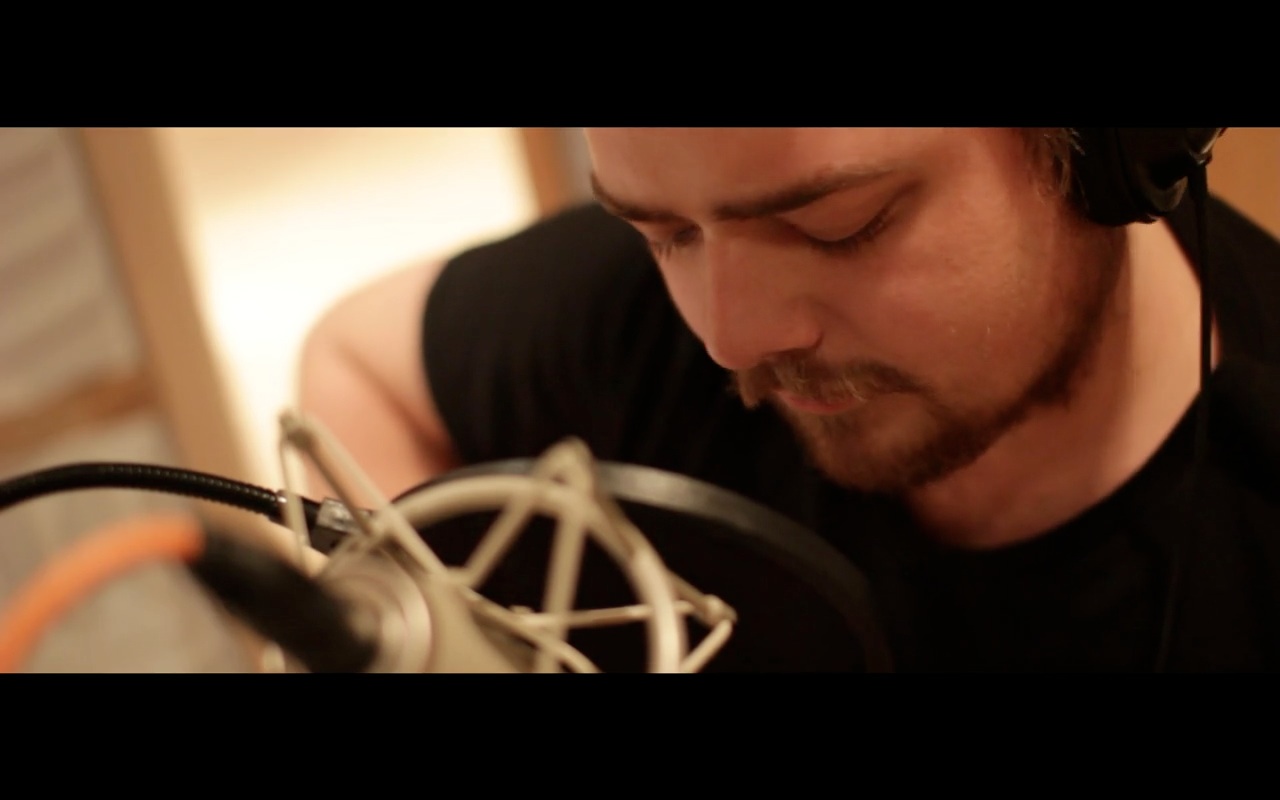
The author records in the Rosza Recording Studio at
Michigan Technological University. Still shot taken from
filmography by Mathew Nanney and Ben Jaszczak.
The French philosopher Jacques Derrida appears in Ken McMullen’s improvisational film from 1983, Ghost Dance. He is asked, “Do you believe in ghosts?” and responds:
That’s a difficult question. Firstly, you’re asking a ghost where he believes in ghosts. Here, the ghost is me. Since I’ve been asked to play myself in a film which is more or less improvised, I feel as if I’m letting a ghost speak for me. Curiously, instead of playing myself, without knowing it… I let a ghost ventriloquize my words, or play my role… which is even more amusing…
Therefore, if I’m a ghost, but believe I’m speaking with my own voice, it’s precisely because I believe it’s my own voice, that I allow it to be taken over by another’s voice. Not just any other voice but that of my own ghosts. So ghosts do exist… and it’s the ghosts who will answer you. Perhaps they already have.
Now, a rhetoric of music doesn’t have to confront Deridian philosophy or even perform deconstruction. But we might learn something here about the analysis of voices, of recordings, and of digital waves. What does this mean for our identities, our authenticity? How do we reconcile the reality of having to let the voice leave the body, and of letting it be recreated on our speakers: ghosts born from our household technology? Do we perform a séance each time we press "play"?
Folk is as much a looking-back as it is a looking-forward. It hopes to initiate change and cause a rupture, a space of potential for new thinking and new possibilities. It does so by calling up its roots, its traditions, its histories.
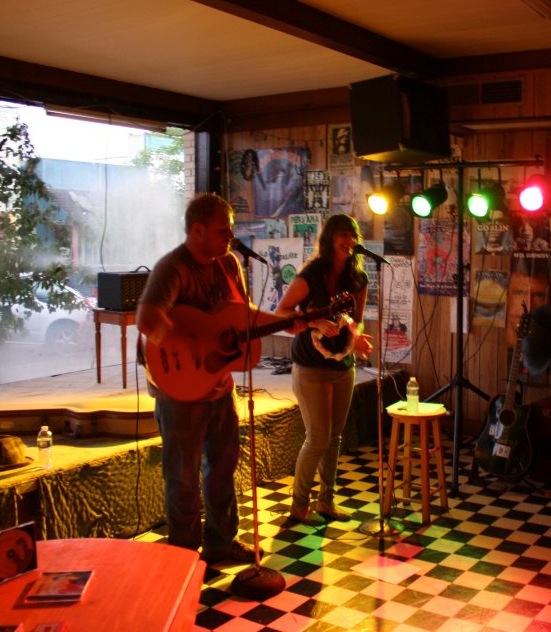
Marquette-based duo Shadow Arcade
perform. Shadow Arcade is Troy
Graham and Breanne Kanak.
These are some of the issues I am trying to explore through this audio collaboration with the Above the Bridge organization. And it has been through careful planning and play that we’ve decided on rhetorical moves, such as the use of a violin to represent a ghost, mirroring Berlioz’s "The Damnation of Faust" throughout the album or the mark of the trumpet to symbolize the return of life because of its bold, round character.
We must remember, though, to analyze the choices we ourselves make. We might dig into issues of gender, for example, and ask: why is femininity associated with the flute, and how can we avoid making such problematic rhetorical choices?
Though Above the Bridge is dependent on the university and its resources, it is independent from industry hands. We must be critical of the notion of independence, as we are still influenced by music produced and distributed by the music machine: radio, advertising, our popular culture.
We might wonder if any music is "independent" at all, and what that means. Yet we see more and more small musical groups rising to prominence on a system they’re building themselves. Phil Elverum, who published under the moniker The Microphones and now Mount Eerie, founded his record label off the success of his self-distributed music.
An Electric Fire in the Wooded North
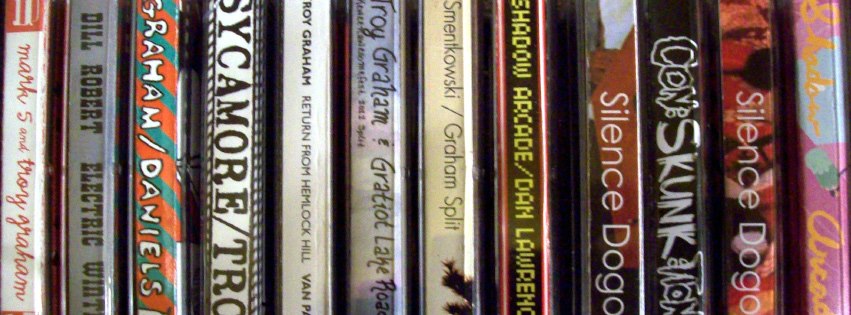
Array of cassette tapes by Jeremy Moran, owner
of Van Party Tapes, Marquette, MI. Presale orders
regularly fill up via his BandCamp page.
Many musicians are turning to the web to escape the traditional and narrow forms of "making a living" in the music business. Downstate Michigander Sufjan Stevens has been an advocate of using BandCamp to sell his work. BandCamp takes an almost insignificant share of the profits for using their digital storefront, which is absolutely liberating when we understand how very little of the profits musicians are given in major record deals.
And for a community of musicians stuck up in a snowy peninsula who have few venues and no presence in physical storefronts, the Internet has promoted an intense resurgence in musical creativity and inspiration and a way to found an identity that isn’t determined by the giants of corporate music.
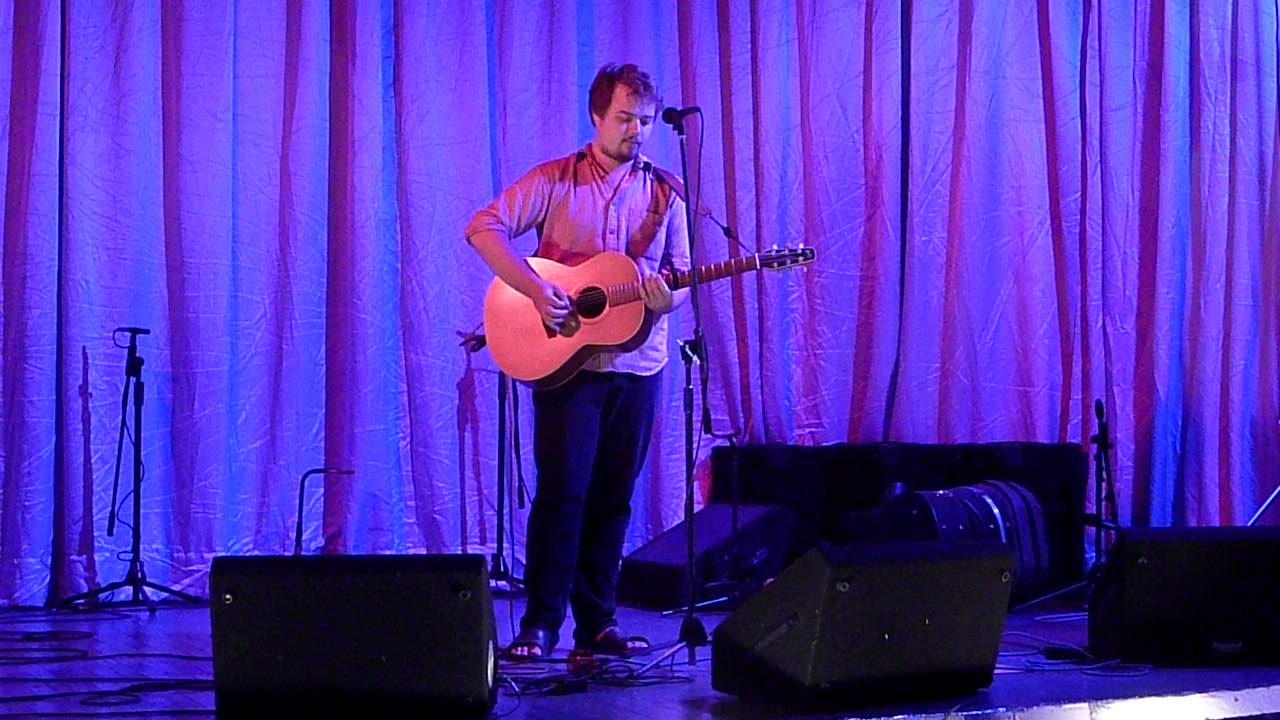
The author performs at the historic Orpheum Theater,
once a vaudeville theater, built during the copper boom in
Hancock, MI.
Perhaps that’s what real folk music does: it doesn’t have to be recorded on reel-to-reel or with your great-grandfather’s banjo to be authentic. These are illusions. It has to come from a people who are fighting to be themselves in opposition to a power that’s trying to take hold of their culture. To make folk, to be folk, is to build a backyard bonfire of cultural autonomy.
That’s who we are as Yoopers: we’re the quiet, reflective winterfolk of the great wooded north. And that’s why we embrace these digital technologies to assist us in the production and sharing of our songs and timbres. But none of us, not a single one of us, must be zealous through overt, unquestioning techno-optimism.
An active, engaged listening—not just to music but to all the sounds, the sounds of language, of life, of neighbor’s footsteps and the crunch of snow in December, to the sounds of ourselves—must not be forgotten as part of our experience here on this noisy, little sphere in space.
Dan W. Lawrence is a thinker, writer, musician, and night owl. He holds a position as a graduate teaching instructor at Michigan Technological University where he is also pursuing a PhD in rhetoric and technical communication.
Dan’s research investigates ancient Greek music pedagogy as an underpinning for a contemporary theory of the rhetoric of music, which might be used in a critique of ideology. He supplements this theoretical approach with his experience as a performing artist and independent music producer.
His latest publication, a book chapter titled "Press C to Play the Ocarina: Rhetoric and Game Music" appears in Digital Ethos and Online Credibility (2012) and explores the relationship between rhetoric and sound in digital media.
Dan’s music can be found at danwlawrence.bandcamp.com or on his YouTube page.
References
Grabar, Henry. “How Far Can You Live From an Interstate Highway?” The Atlantic Cities. Published October 11, 2012. Last accessed December 5, 2012.
Northern Michigan University. “WiMAX Network.” Last accessed December 5, 2012.
Obama, Barack. “Remarks by the President on the National Wireless Initiative in Marquette, Michigan.” The White House: Office of the Press Secretary. Published February 10, 2011. Last accessed December 5, 2012.
Diem, Christopher. “231 House of Muses Lives On.” The Mining Journal. Local newspaper: Marquette, MI. Online edition. Published January 26, 2008. Last accessed December 5, 2012.
McLuhan. The Medium is the Massage. Originally published 1967. Gingko Press edition. 2005.
Žižek, Slavoj. The Sublime Object of Ideology. Verso. New York, NY. 1989
Nazarro, Mary B. Schoen. “Plato and Aristotle on the Ends of Music.” Laval theologique et philosophique. 1978. 34.3, 261-273.
Derrida, Jacques, interview in Ghost Dance. Ken McMullen. 1983.